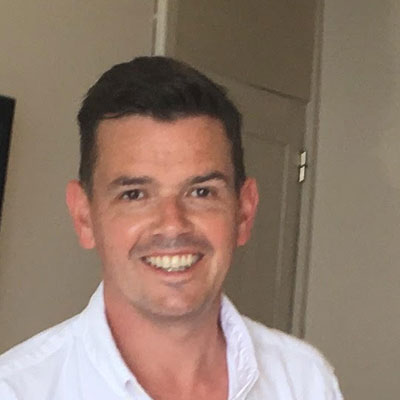The best sleep apps
We run through the best sleep apps for a good night's rest.
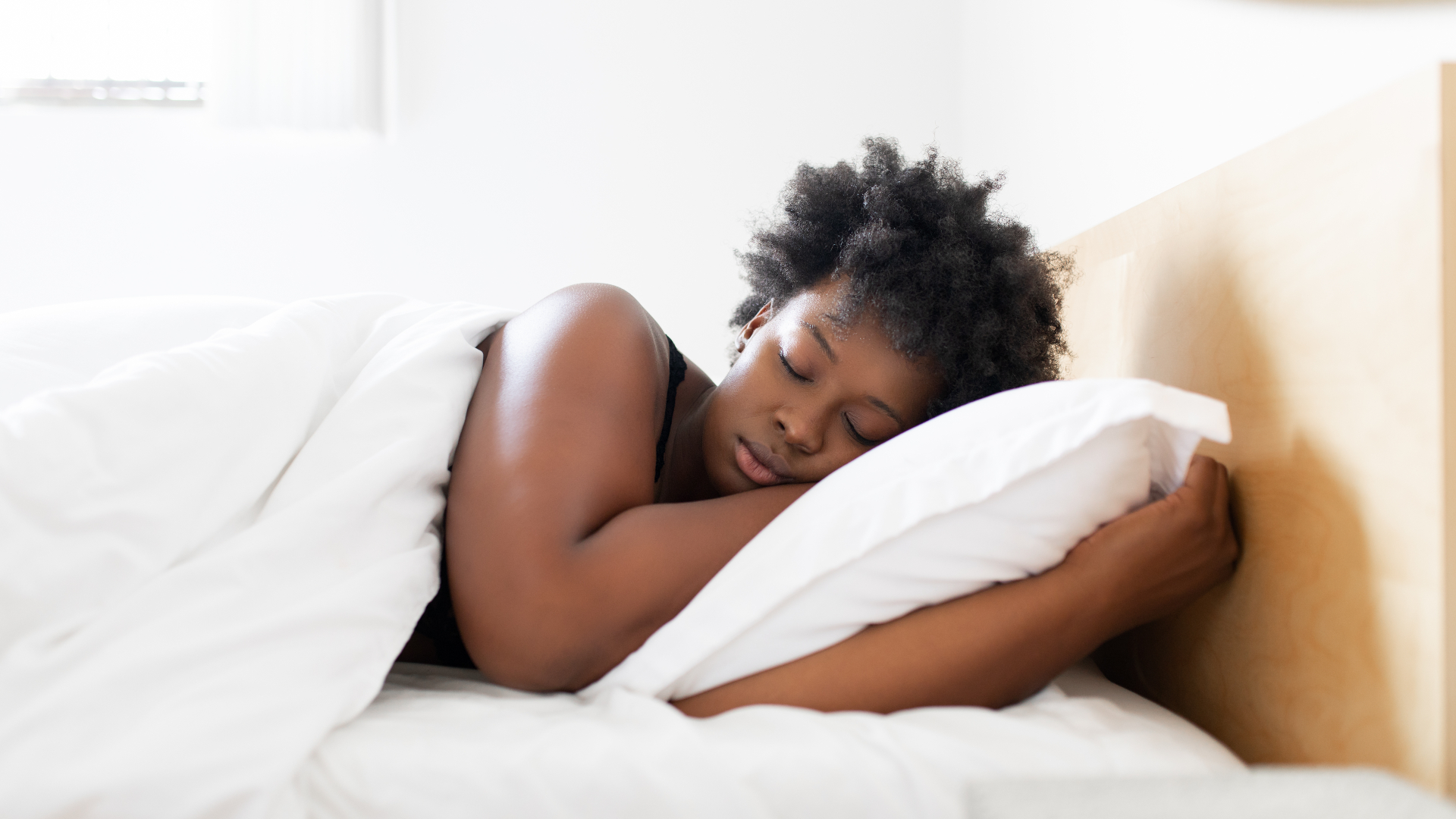
More than 5 million Americans struggle to get to sleep each night according to a 2019 study from Iowa State University, but after two years of COVID-19, the issue is becoming even more common. Research published in the journal Sleep Medicine in January 2021 revealed that during the pandemic the number of people with clinical insomnia (where sleeplessness occurs for at least three nights a week for three months or more) had risen by 37%, with prescription for sleep medications also rising by 14%. It’s now estimated that 30-35% of adults will suffer from insomnia at some stage of their lives.
It’s hardly surprising, then, that those struggling to get a good night’s sleep will try almost anything and everything to help them get some much-needed shut eye. From soothing music to sleep scripts, medication to meditation, there is a huge array of treatments available for people with insomnia, but many are now turning to technology to help them, and sleep apps are becoming increasingly popular.
We asked Michael J. Breus, nicknamed “‘The Sleep Doctor” — a clinical psychologist, fellow of the American Academy of Sleep Medicine — to talk us through some of the best sleep apps on the market.
Somryst
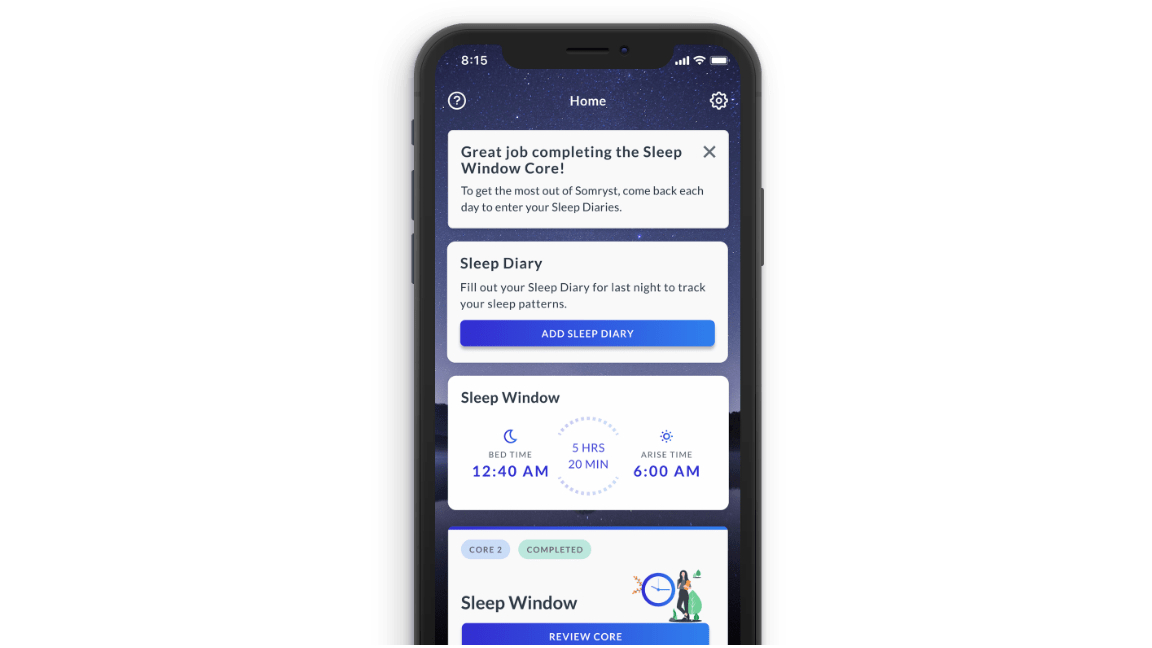
A groundbreaking app for chronic insomnia that uses CBTi (cognitive behavioral therapy), Somryst is a prescription digital therapeutic (PDT) that has Food and Drug Administration (FDA) approval.
Over a course of six to nine weeks, patients are given brain-training challenges, lessons and strategies to improve the way they approach sleep, while doctors can access real-time data on their patients’ progress. “If you can’t find a sleep therapist, or prefer self-study, this is the software for you,” Breus said. “It’s very straightforward too and has clinical data to show its effectiveness.”
In clinical studies of more than 1,400 adults with chronic insomnia, Somryst reduced the amount of time it took to fall asleep by 45% and the amount of time spent awake at night by 52%.
Available on iOS and Android. Check your medical insurance for cover.
Reflectly
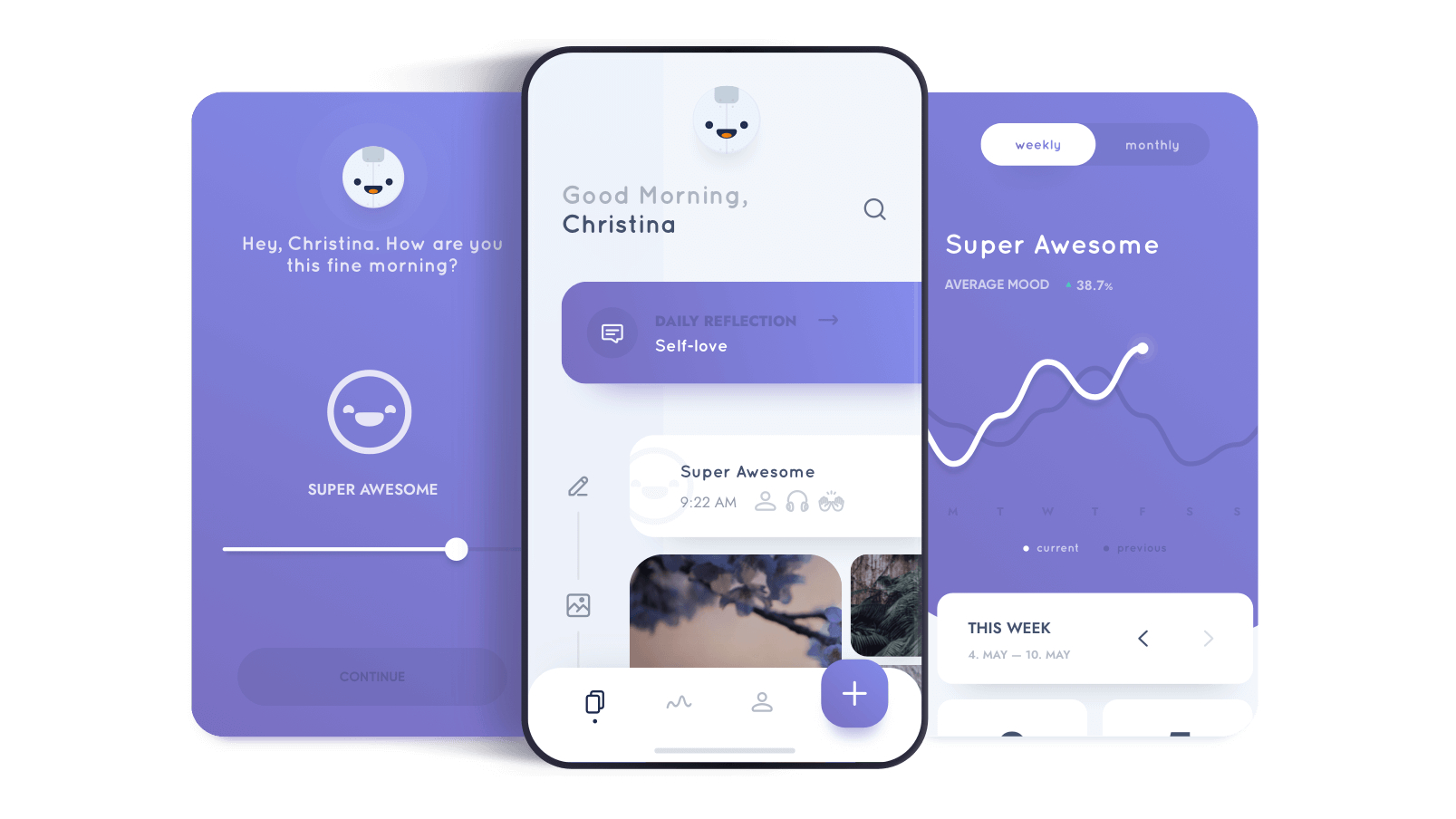
A kind of digital diary, Reflectly helps you to compile a virtual journal, prompting you with questions about your day and your feelings to help declutter your mind of any nagging thoughts that may stop you sleeping. Sleep diaries are often prescribed by medical professionals to more accurately assess the severity of a patient’s insomnia but Reflectly does it digitally. Simple to use and easy to navigate, it’s powered by AI, learning from your responses over time to provide more effective feedback and show you how fluctuations in your mood have affected your sleeping patterns.
Available on iOS and Android. Free to download. Premium subscription available from $10 a month.
Muse
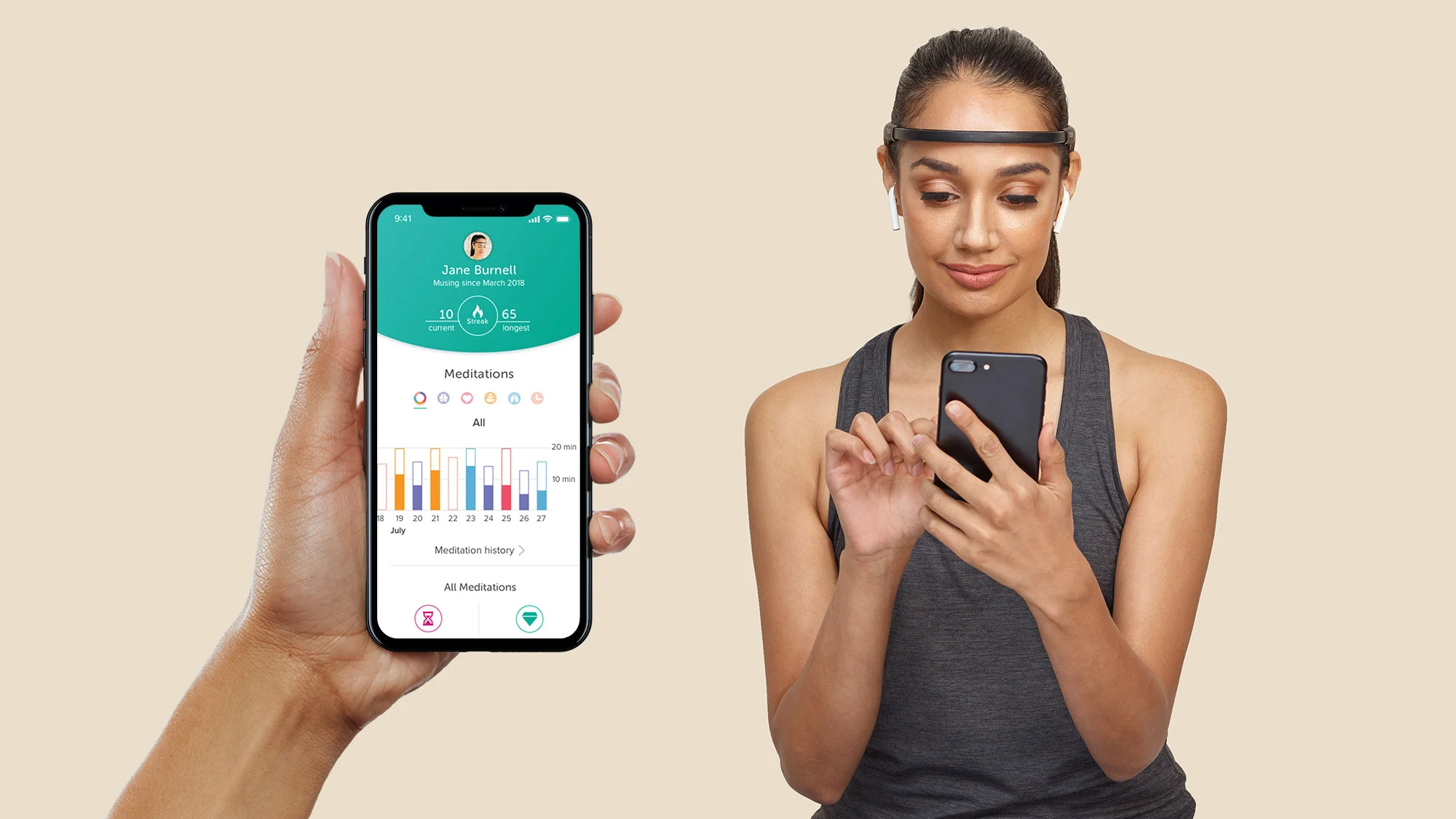
If the idea of meditating to help you sleep appeals but you don’t know where to start, then Muse, an electroencephalography (EEG) device worn in a headband with an accompanying app, is the perfect companion. Just connect your smartphone to the device (via Bluetooth), open the app and put your Muse headband on. Once you’ve closed your eyes, it will monitor your brain activity, translating it into the right kind ambience to help aid sleep. It also has a sleep-inducing feature the company calls a “Digital Sleeping Pill.”
Research shows that mindfulness meditation can help combat insomnia and it’s certainly worked for Breus. “I hate to meditate so this has been a lifesaver,” he said. “The real-time biofeedback results for my own meditation practice has been inspiring too. In fact, I’ve just discovered I have logged over 7,000 minutes of meditation.
“There is no question it helps my sleep.”
Available on iOS and Android. Free to download. Muse 2 Headband and Annual Premium Subscription from $207.98.
Sleepscore
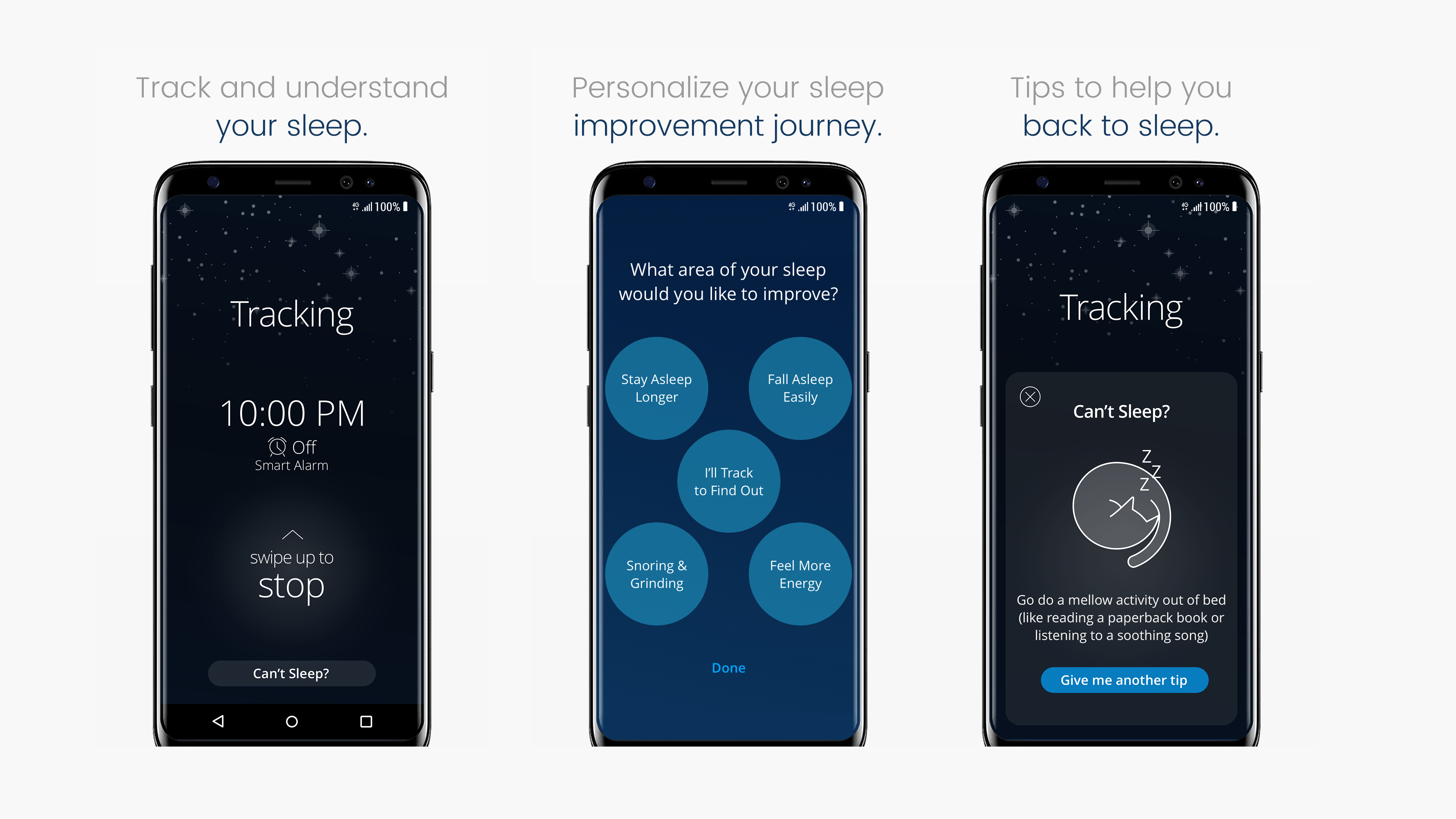
Sleepscore uses sonar technology to track your sleep; the app sends sonar waves from your phone to measure everything from your breathing patterns to how long you were awake at night. By tracking your light, deep and REM sleep, the app is able to give you a sleep score each night, which you can then work to improve. It also measures the no, while the Premium version offers unlimited sleep tracking and will even compile a sleep report that you can share with your doctor.
Available on iOS and Android. Free version, or premium version at $7.99 per month.
Oura

Oura is a ring that’s worn on a finger. Oura’s impressive range of monitors ensures you keep tabs on everything from your heart rate to your body temperature, but its ability to track your sleep is perhaps its best feature. Not only will it accurately assess the quality of your sleep in each stage of the night (light sleep, deep sleep and REM sleep), but it will even kick in when you steal a nap in the afternoon.
Once it learns how and when you sleep, the app will then offer optmized advice as to how you can best prepare for sleep each night. “I use this to accurately track my sleep daily,” Breus said. “It has the most reliable accuracy data of any tracker on the market, and with the long battery life and easy-to-wear ring, it’s really easy to access that critical data you need for a good night’s sleep.”
Available on iOS and Android. Free to download. Ring costs $299.
Pzizz
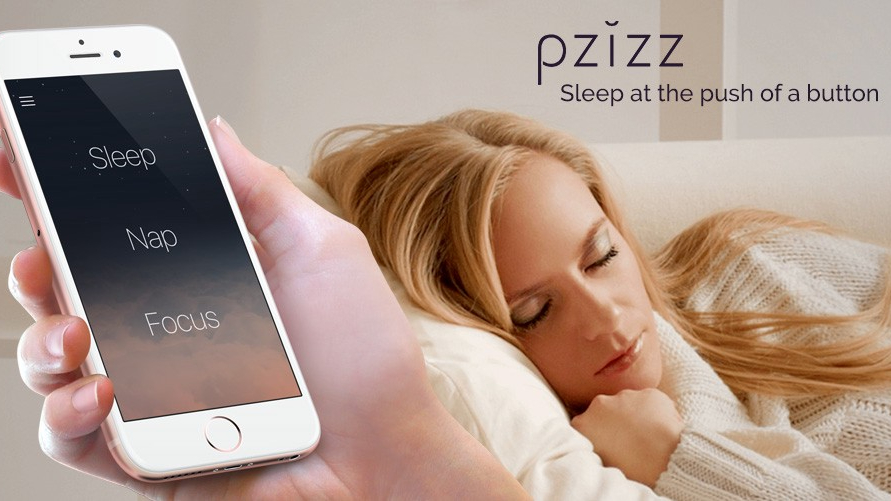
Pzizz uses the power of sound, or “psychoacoustics,” to create soundtracks of music, rhythms, sounds and spoken words, or ‘dreamscapes’, to help you fall asleep and wake up feeling refreshed.Tailored to the various stages of your sleep cycle, it uses clinically tested techniques as such heart rate and diaphragmatic and variability breathing, mindfulness meditation and muscle relaxation to help create the ideal conditions for sleep.
The app has three settings — Sleep, Nap and Focus. Select Sleep or Nap, and you can choose the length of the dreamscape you prefer, as well as picking the speed of the soothing music or narration you’ve decided on. A wake-up function is also available that aims to bring you around in the best possible mood. Pzizz also features ‘focuscapes’ in Focus mode, for those times when you need something to help you concentrate during the day.
Available on iOS and Android. Free version or Premium subscriptions from $9.99 a month.
Headspace
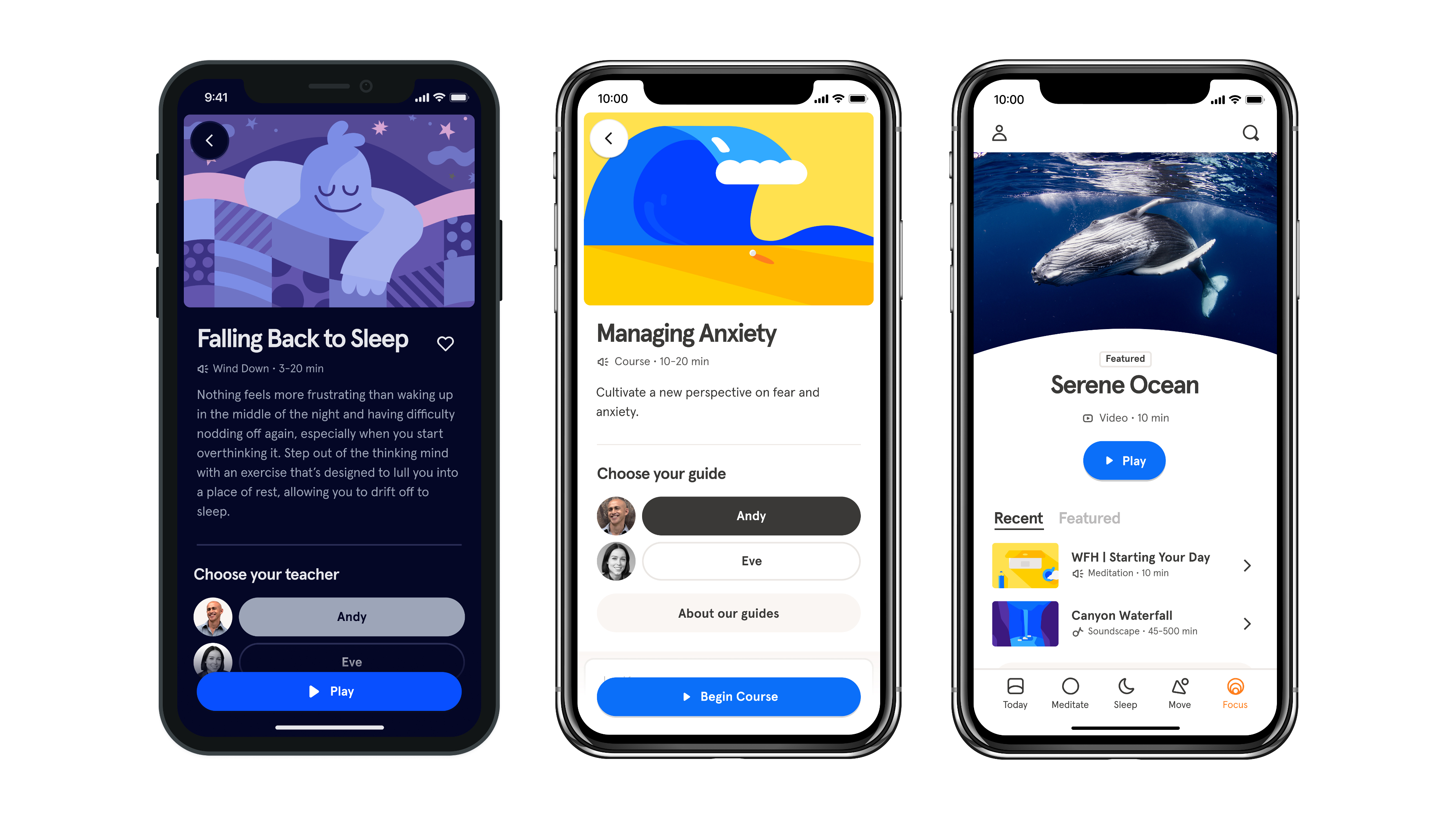
Headspace is another app that aims to help with meditation, as well as potentially improving sleep. “Headspace also has really gotten the meditation thing down to a science for many, but it’s also really great for sleep,” Breus said. Download the app for free and you’ll get limited access to a range of audio experiences, or “sleepcasts” that aim to help users to relax, unwind and ease into sleep.
There are also hours of soothing soundscapes that help to create a tranquil setting for a great night’s sleep. Access to the full range of Headspace’s content, with over 40 tailored meditation courses, including ones for sleep and stress, requires a subscription.
Available on iOS and Android. Free to download. A 14-day free trial is available.
Sleep Cycle
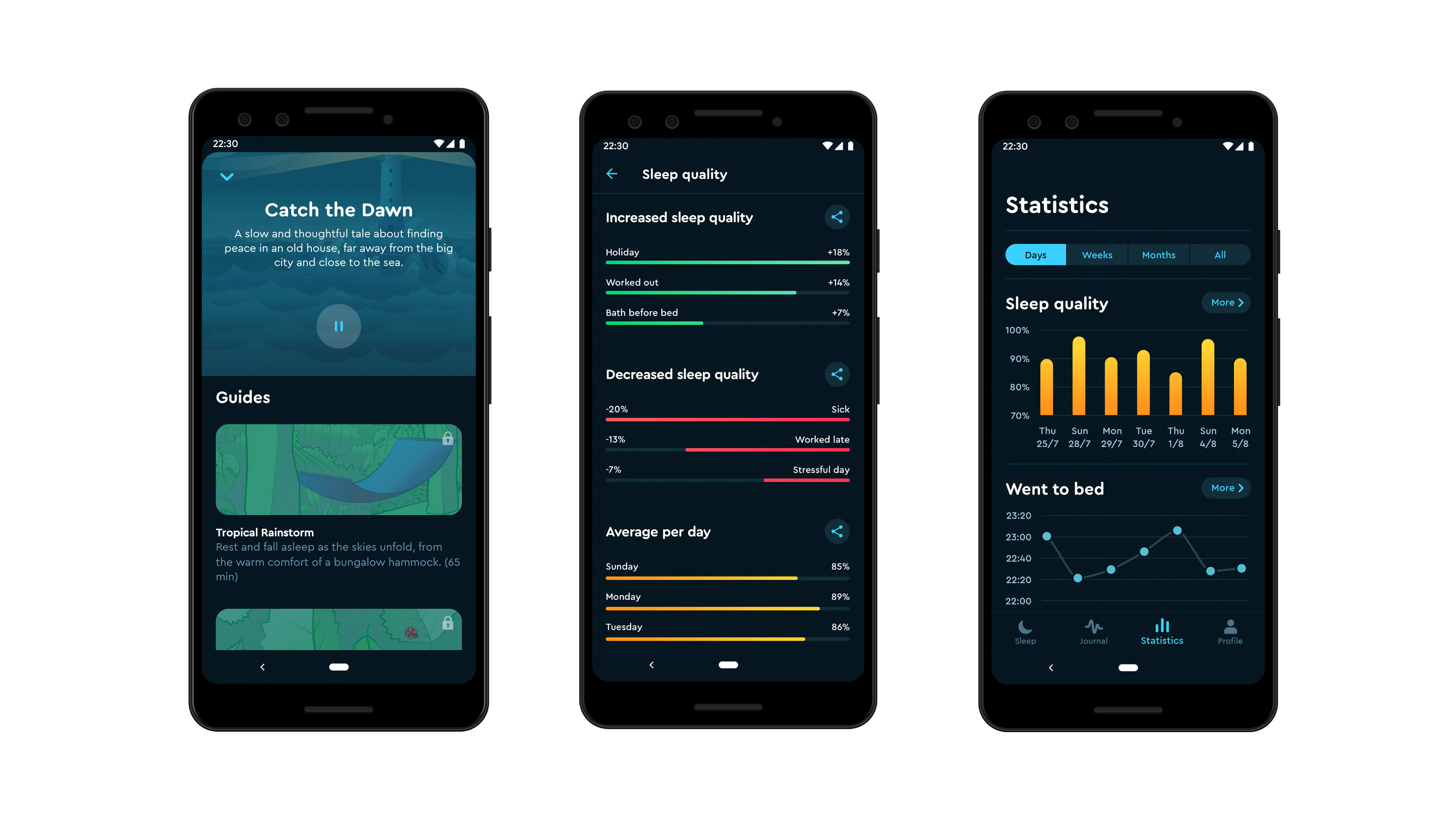
It may sound sinister, but Sleep Cycle listens to you while you sleep, recording everything from your snoring levels to the ramblings made when you’re deep in dreams. It will then track your night’s sleep in graph form, putting the audio soundtrack over it so you can see what was happening at various stages of the night.
The beauty of Sleep Cycle is that it’s also fully integrated with Apple Health, so you can exchange data seamlessly, and it doesn’t require any additional equipment or wearables – just place your phone next to your bed, turn on the app and drift off.
Just be careful what you say in your sleep.
Available on iOS, Android and Huawei. $9.99 per month or $39.99 per year. Free trial available.
This article is for informational purposes only, and is not meant to offer medical advice.
Sign up for the Live Science daily newsletter now
Get the world’s most fascinating discoveries delivered straight to your inbox.
A journalist, editor and author with over 25 years experience in the sports, health and fitness sectors, Gavin has written for a wide range of titles, including The Guardian, The Observer and The Sun in the UK, as well as international titles such as The New York Post. He also currently writes health features for the Telegraph newspaper in the UK, specializing in midlife issues.
